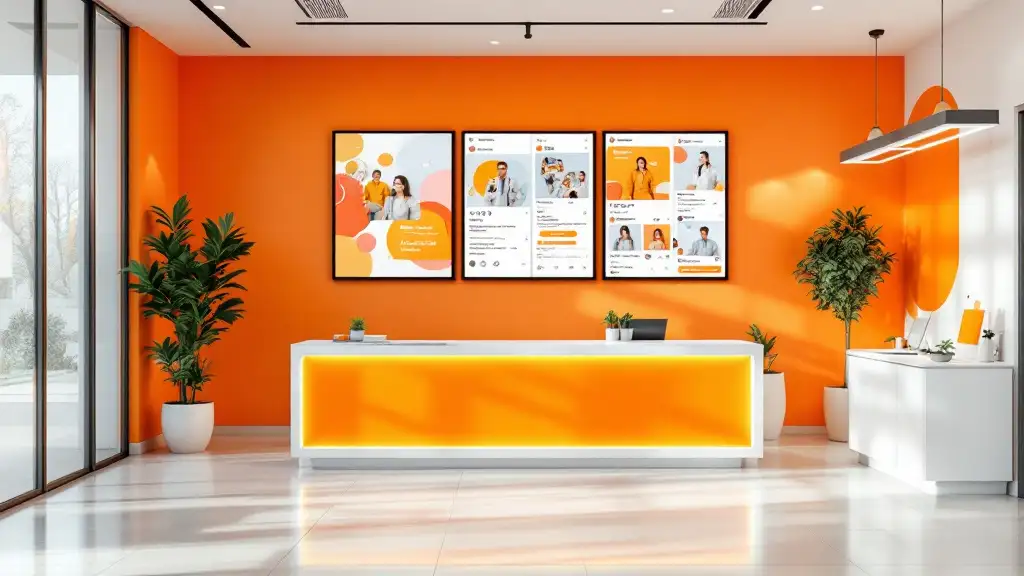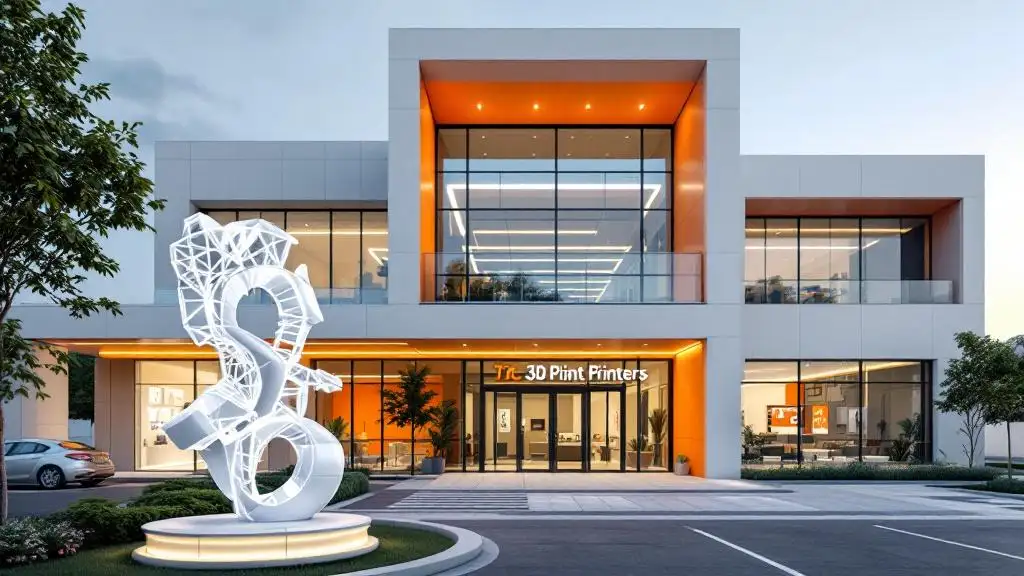The Power of Video Marketing for Rehab Centers
Harnessing Visual Stories to Transform Rehabilitation Marketing


The Power of Video Marketing for Rehab Centers
Unlocking the Full Potential of Video to Enhance Recovery Outreach
In an increasingly digital world, video marketing has emerged as a vital tool for rehab centers aiming to expand their reach, build trust, and elevate their brand. By leveraging authentic, emotionally resonant content, treatment facilities can connect more effectively with prospective patients and their families, dispelling myths and promoting awareness. This comprehensive look explores the myriad benefits of video marketing, practical strategies for implementation, key content types, and its profound impact on outreach, engagement, and client acquisition.
Benefits of Video Marketing for Rehab Centers
Video marketing plays a pivotal role in enhancing the visibility and credibility of rehab centers. By leveraging visual stories, testimonials, facility tours, and educational content, centers can significantly increase their brand awareness. These videos humanize the recovery journey, allowing prospective clients and their families to connect emotionally with the center’s mission and success stories.
This approach fosters trust and builds credibility, as videos showcase real success stories, professional staff, and welcoming facilities. Emotional connection is particularly vital in behavioral health, where overcoming stigma and misconceptions is ongoing. Authentic videos help demystify treatment processes and encourage individuals to seek help.
Content shared across social media platforms, websites, and YouTube enhances online searchability and improves search engine rankings. This broadens outreach, making it easier for potential clients to discover treatment options, thus increasing inquiries and admissions. Additionally, creating videos is cost-effective and scalable. Shooting simple, high-impact videos using smartphones and affordable microphones allows centers of any size to produce compelling content.
In summary, video marketing offers rehab centers many advantages: increased brand exposure, stronger trust-building, emotional engagement, improved SEO, and a cost-efficient way to reach a wider audience. These benefits collectively support growth, reputation, and patient success.
Strategies for Effective Video Marketing Implementation
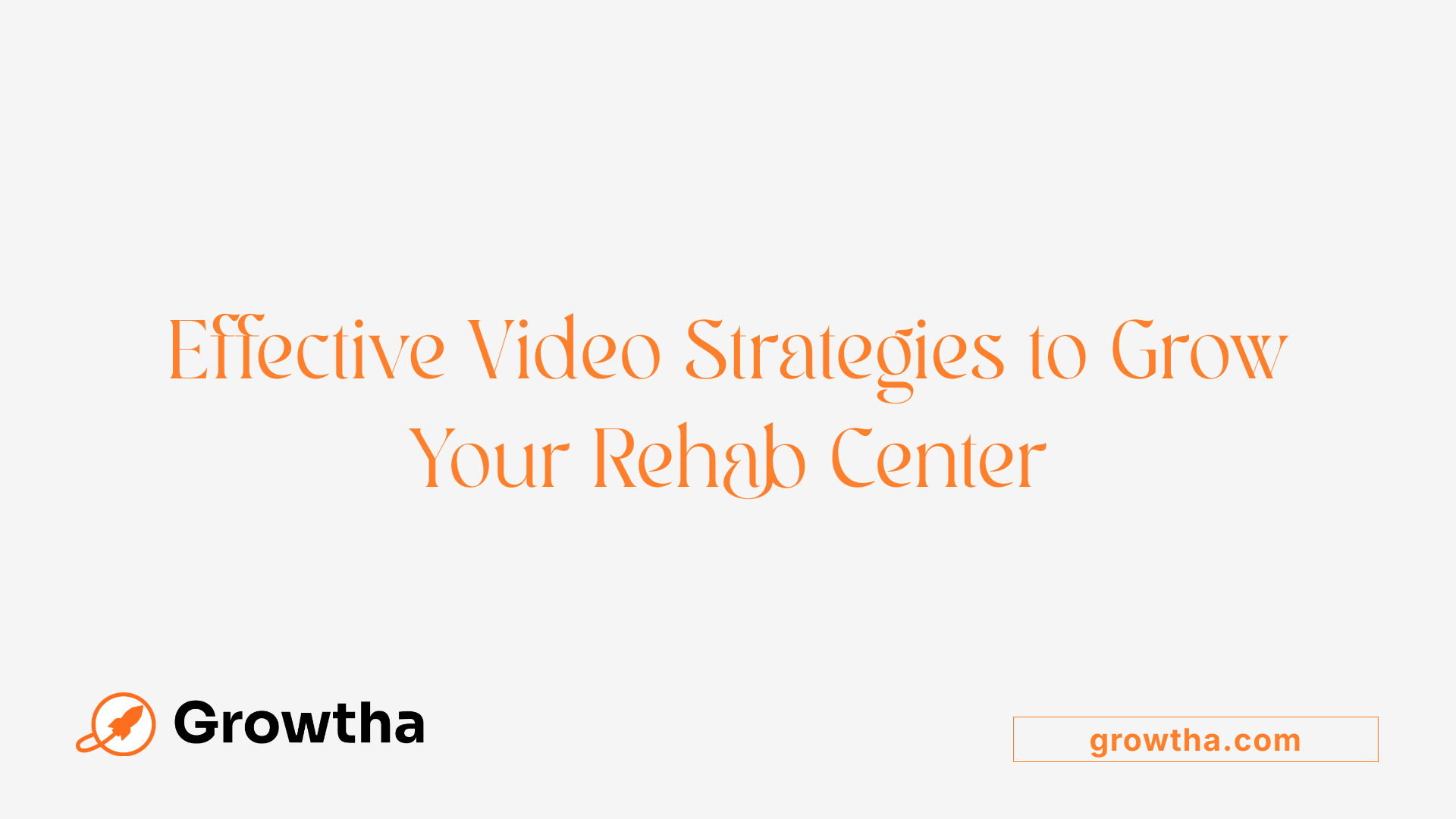
What strategies can rehab centers use to effectively implement video marketing?
Rehab centers can boost their outreach by developing targeted, genuine video content that appeals emotionally to prospective clients and their families. Sharing real success stories, staff introductions, and educational videos helps build trust and humanizes the treatment process.
Optimizing each video for search engines is essential. This involves using relevant keywords in titles, descriptions, and tags, creating eye-catching thumbnails, and ensuring videos are properly categorized. These SEO tactics increase online visibility on platforms like YouTube and Google, making it easier for potential clients to find the center.
Using social media channels such as Facebook, Instagram, TikTok, and LinkedIn enables centers to share videos directly with targeted audiences. Engaging content tailored to specific demographics fosters stronger connections and encourages sharing.
Incorporating virtual tours, webinars, and live Q&A sessions can provide transparency and establish authority. These formats allow prospects and families to experience the environment firsthand and ask questions in real-time, reducing barriers to engagement.
Tracking video performance through analytics tools like YouTube Analytics, Google Analytics, and social media insights reveals what resonates most with viewers. Regularly analyzing engagement rates, watch time, and conversions permits centers to refine their video strategy and achieve better results.
Finally, creating videos doesn’t require extravagant equipment. Modern smartphones and affordable microphones, coupled with AI tools such as ChatGPT for scripting and idea generation, allow centers to produce high-impact content without significant costs. Consistent practice and continuous content creation help improve quality and confidence over time.
Impact of Video Marketing on Outreach, Engagement, and Branding
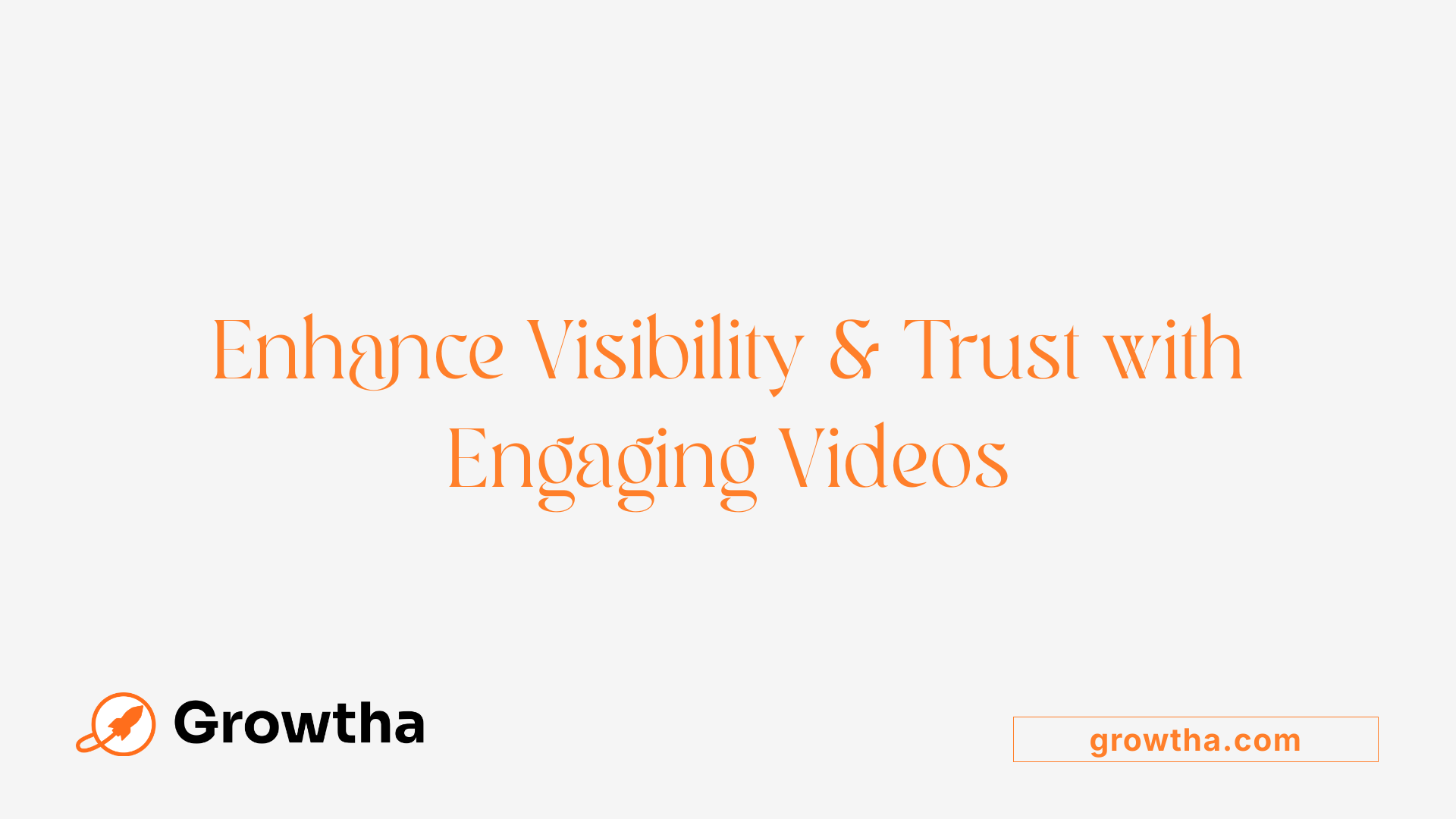
How does video marketing impact outreach, engagement, and branding for behavioral health and addiction treatment centers?
Video marketing plays a crucial role in elevating the visibility and reputation of behavioral health and addiction treatment centers. By sharing engaging videos on platforms like YouTube, Facebook, and Instagram, centers can reach a broader audience and improve their online presence.
One of the most effective aspects of video marketing is its ability to humanize centers by sharing personal stories, testimonials, and staff introductions. These authentic narratives foster emotional connections, build trust, and help reduce stigma around mental health and addiction. When prospective clients see real success stories and compassionate staff, they are more likely to consider seeking help.
Educational content is another vital element. Short, clear videos can dispel myths, explain complex topics like addiction causes and treatment options, and demystify recovery processes. Animated explainers, live Q&A sessions, and detailed testimonials serve to inform and engage viewers, encouraging them to take action.
Utilizing diverse content formats—such as brief social media clips, longer program overviews, or virtual facility tours—and distributing them across various channels ensures broad outreach. Tracking metrics like views, engagement, inquiries, and conversions allows centers to see what resonates most, enabling them to refine their marketing strategies.
Ethics and sensitivity are integral to effective mental health video marketing. Content must respect patient privacy, approach topics with empathy, and showcase diversity and inclusivity. When done correctly, video marketing becomes a powerful tool for building credibility, fostering community, and ultimately helping more individuals access the care they need.
In summary, video marketing boosts visibility, creates authentic connections, educates audiences, and measures impact—making it an indispensable element in the growth and reputation of behavioral health centers.
Filling Beds and Enhancing Visibility with Video Content
Can video marketing help fill beds and improve visibility for rehabilitation centers?
Absolutely. Video marketing has become a powerful tool for treatment centers to connect on an emotional level with prospective patients and their families. By sharing authentic personal stories and success testimonials, centers can humanize their services, helping build trust and reduce the stigma around seeking help.
Simple, accessible videos created with smartphones and affordable microphones can have high impact, especially when shared on social media platforms like YouTube, Facebook, and Instagram. These videos allow centers to showcase their facilities, introduce staff, and highlight amenities in an authentic way that appeals to viewers.
Incorporating patient testimonials, staff introductions, and virtual tours not only makes content more relatable but also boosts search engine visibility. Using AI tools like ChatGPT can aid in scripting and brainstorming ideas, making video production more efficient.
Optimizing videos for search engines—using relevant keywords, tags, and descriptions—ensures your content ranks higher in online searches. This visibility increases the likelihood of reaching more potential clients actively seeking help.
Building a solid online reputation through authentic video content helps establish credibility, reassures prospective patients, and encourages them to take the next step towards treatment.
In summary, integrating strategic video marketing into your digital outreach is essential. It can directly influence whether prospective patients choose your center, ultimately helping to fill beds and grow your rehabilitation facility’s reputation.
Building Trust and Community Engagement through Video
Video marketing plays a crucial role in fostering trust and building a sense of community around rehab centers. By sharing authentic stories from patients and staff, centers create relatable and humanized content that resonates deeply with prospective clients and their families.
Personal testimonials, staff introductions, and behind-the-scenes glimpses showcase the center’s transparency and genuine care. This openness helps break down barriers, address concerns, and establish credibility that static text alone cannot achieve.
Utilizing a mix of short-form videos, typically 30-60 seconds for social media, and longer videos ranging from 3.5 to 9 minutes for detailed explanations, allows centers to effectively educate and engage their audience. Short videos highlight personalities and success stories, fostering a sense of community, while longer formats provide comprehensive information about treatment options.
Starting with simple equipment like smartphones and affordable microphones makes producing consistent content feasible. AI tools such as ChatGPT can support content planning, scripting, and idea generation, streamlining the creation process.
The success of video efforts is measured through genuine engagement—such as inquiries, messages, and conversions—not just view counts. By monitoring these interactions, rehab centers can refine their approach, ensuring that their videos continue to build trust and community connection.
In summary, thoughtful and authentic video content, combined with strategic distribution and measurement, significantly enhances a rehab center's ability to connect emotionally with its audience, fostering trust and a strong community presence.
Content Types and Best Practices in Behavioral Health Video Marketing
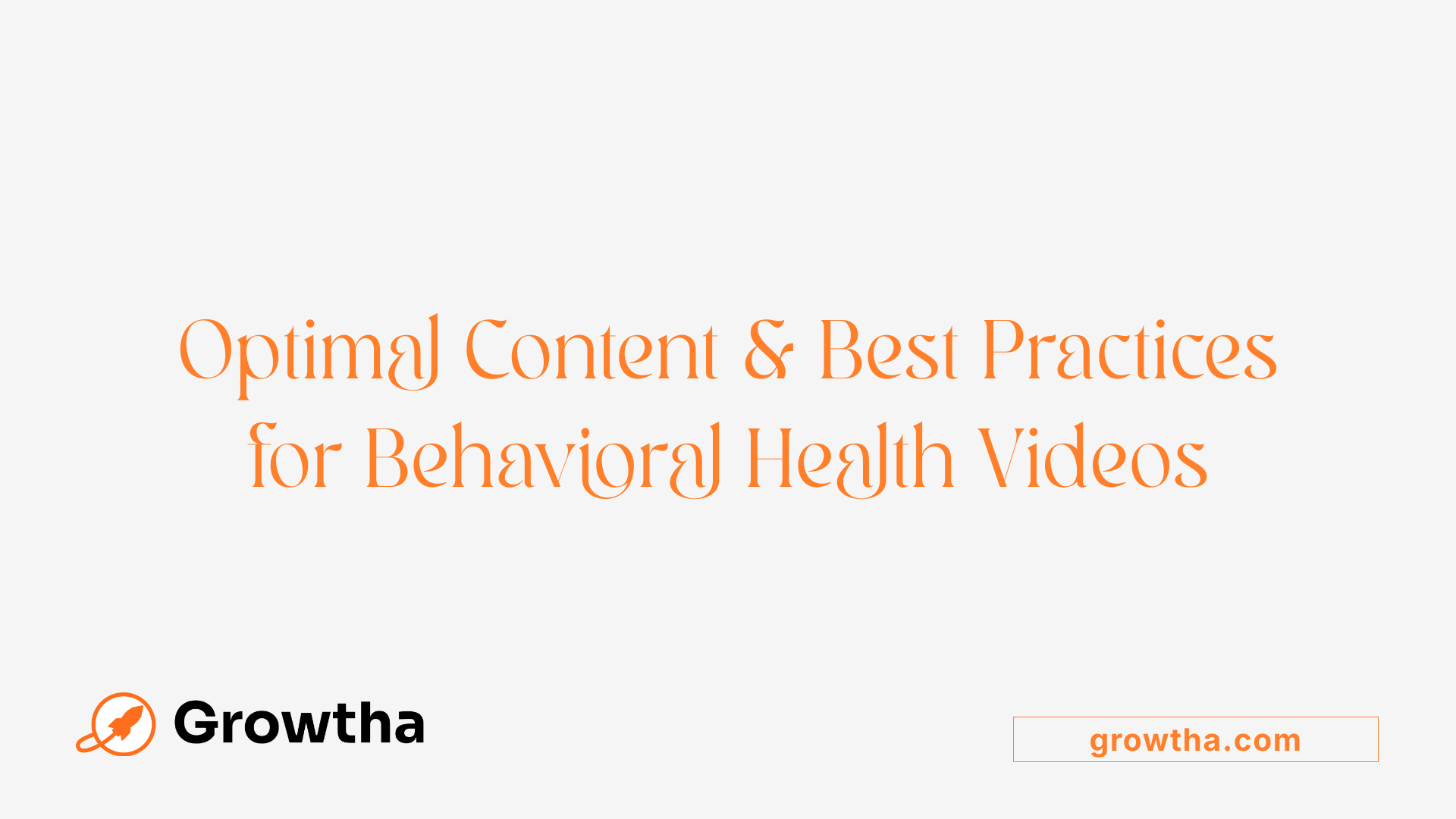 In behavioral health and addiction treatment marketing, leveraging a variety of video content types can significantly enhance engagement and trust. Patient testimonials and success stories are powerful tools that humanize the recovery journey, providing authentic insights into the treatment process and inspiring hope for prospective clients.
In behavioral health and addiction treatment marketing, leveraging a variety of video content types can significantly enhance engagement and trust. Patient testimonials and success stories are powerful tools that humanize the recovery journey, providing authentic insights into the treatment process and inspiring hope for prospective clients.
Educational videos, including animated explainers, help demystify complex mental health concepts and treatment options. These videos can clarify causes, symptoms, and available therapies, making information accessible and reducing stigma. Staff introductions and behind-the-scenes footage foster transparency, allowing potential clients and their families to see the compassionate professionals and welcoming environments that define the center.
Adhering to ethical standards and privacy regulations like HIPAA is crucial. Content must respect patient confidentiality, seeking genuine consent and avoiding sensitive disclosures. Authenticity should be prioritized—stories and visuals need to be compassionate, honest, and non-judgmental to resonate effectively.
High-quality visuals paired with compelling storytelling techniques enhance the emotional impact of videos. Clear narratives, empathetic tone, and visual storytelling help convey messages more effectively, capturing viewers’ attention and fostering connection.
To maximize reach, videos should be optimized for various platforms. Short-form content (30-60 seconds) fits well on social media, encouraging shares and quick engagement, while longer videos (3.5 to 9 minutes) can provide in-depth information on programs and treatment pathways.
Best practices also include creating engaging thumbnails, compelling titles, and clear calls-to-action, guiding viewers toward inquiries or further engagement. Incorporating interactive elements such as live Q&A sessions or webinars can strengthen community trust and provide real-time support.
Monitoring performance through analytics tools like YouTube Analytics, Google Analytics, and platform insights is essential. These metrics help assess engagement levels, reach, and the impact of campaigns, informing continuous improvements.
By thoughtfully combining diverse content types with ethical, high-quality presentation and platform-specific optimization, behavioral health organizations can foster authentic connections, educate audiences, and build lasting trust.
The Role of Video in Broader Digital Marketing Strategies
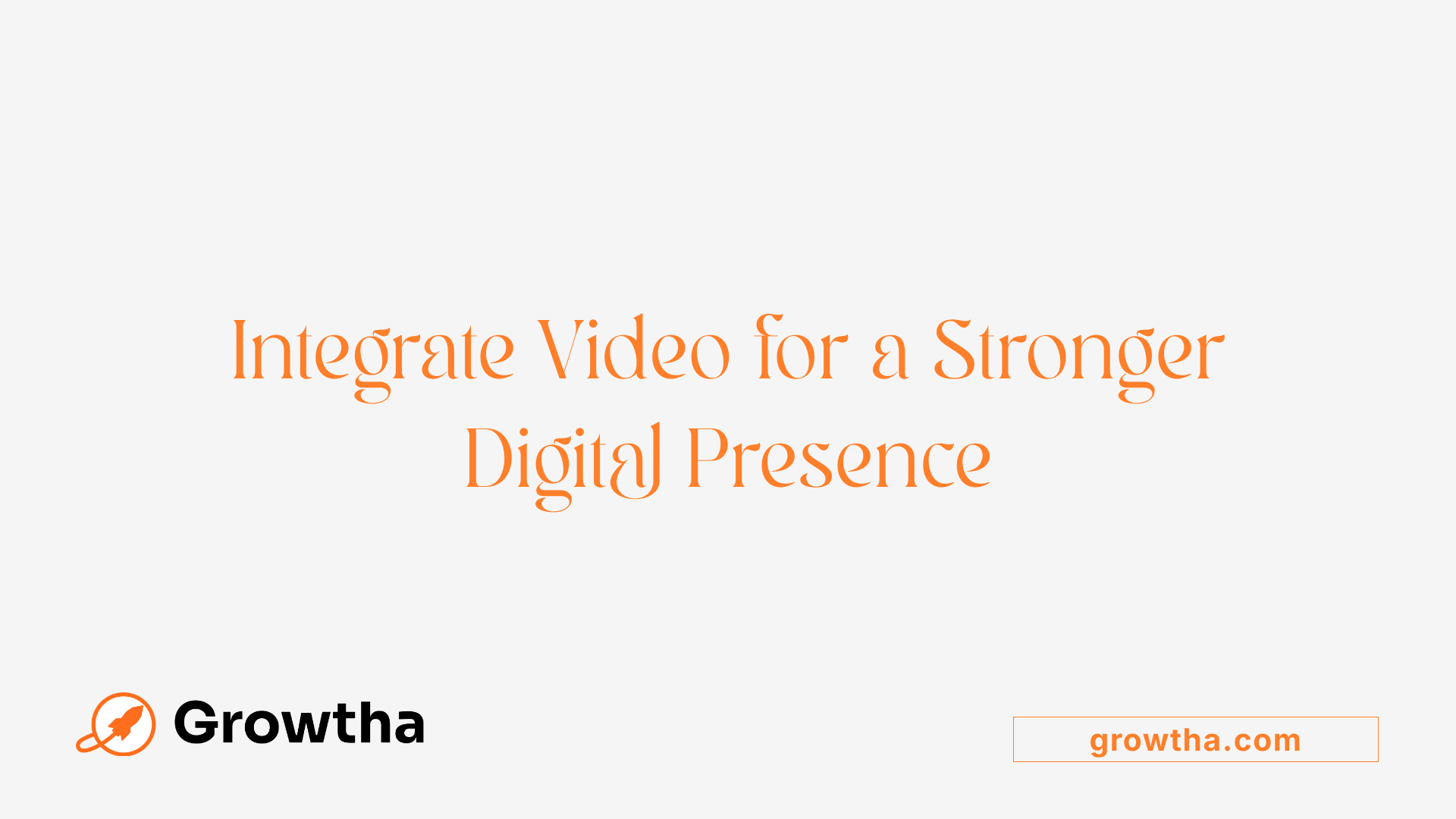
Why is video marketing important within a broader digital marketing strategy for rehab facilities?
Video marketing plays a crucial role in the overall digital marketing efforts of rehab centers. It is a highly engaging format that effectively communicates detailed and complex information about addiction, treatment options, and recovery stories. Unlike text, videos can evoke strong emotional responses, fostering trust and understanding among prospective clients and their families.
Sharing videos on platforms like YouTube, Facebook, and Instagram significantly boosts a center’s online visibility. These platforms not only reach wide audiences but also improve search engine rankings when videos are optimized with relevant keywords, helping potential clients find the center more easily.
Videos help dispel common myths about addiction and treatment, presenting authentic human stories and facility tours that make centers appear welcoming and trustworthy. Such visual content humanizes the treatment experience, builds credibility, and fosters emotional connections that motivate action.
Integrating videos into digital marketing amplifies brand awareness and enhances engagement. They support other strategies like email marketing and social media campaigns by providing compelling content that encourages clicks, shares, and inquiries. Ultimately, video marketing is an essential tool for increasing patient engagement, building trust, and converting viewers into committed clients, making it indispensable in a comprehensive digital health marketing plan.
Influence of Video Marketing on Client Acquisition

How can showcasing success stories and staff affect client acquisition?
Videos featuring patient testimonials, staff introductions, and success stories provide authentic and relatable content that builds trust. Prospective clients and their families often seek reassurance that the center delivers effective care. Seeing real people sharing positive outcomes humanizes the recovery process and encourages new inquiries.
What role does video content play in reducing anxiety about treatment?
Videos can demystify the treatment experience, alleviating fears related to unfamiliar environments or procedures. Facility tours, staff introductions, and explainer videos create a sense of familiarity and comfort, making prospective clients more willing to pursue treatment.
How does video marketing enhance online presence and trust?
Embedding videos on websites, YouTube, and social media boosts search engine rankings, increasing visibility. High-quality videos showcasing the center’s amenities, staff, and success stories foster credibility. They help prospective clients see the center as approachable and trustworthy, which is crucial in behavioral health.
In what ways can videos help centers stand out from competitors?
Unique and authentic video content highlighting specific strengths—such as specialized programs, community engagement, or state-of-the-art facilities—differentiate centers in a crowded market. Short, engaging videos can quickly communicate what makes a center special, influencing decision-making.
How does video marketing generate inquiries and admissions?
Clear calls-to-action within videos, shared across social platforms, guide viewers toward contacting the center. Videos that educate about treatment options can convert viewers into leads. By consistently producing engaging content, centers can build a pipeline of prospects eager to seek help.
By leveraging these strategies, treatment centers can use video marketing to attract more clients, providing transparent, humanized insights into their services. Short-form videos serve social media audiences efficiently, while longer videos present detailed program information. Combining authentic storytelling with strategic distribution ensures a wider reach, builds trust, and ultimately leads to higher patient admissions.
| Content Focus | Types of Videos | Best Use Cases | Goals Achieved |
|---|---|---|---|
| Success stories and staff | Testimonials, staff interviews | Building credibility, trust, connection | Generate inquiries, credibility |
| Reducing treatment anxiety | Facility tours, explainer videos | Emotional comfort, familiarity | Improve engagement |
| Online presence and trust | Facility showcases, patient stories, amenities | Increasing visibility and trust | Boost SEO, expand reach |
| Differentiation from competitors | Highlight unique features and programs | Standing out in the market | Lead to inquiries and admissions |
| Conversion and inquiries | Calls-to-action, educational content | Driving prospective clients to contact | Increase patient intake |
Overall, seamlessly integrating video into your marketing strategy helps rehab centers to connect authentically with potential clients, demonstrate expertise, and differentiate their services—ultimately increasing client acquisition.
Embracing Video to Elevate Recovery Outreach
As the digital landscape continues to evolve, the importance of video marketing in behavioral health and rehab centers cannot be overstated. Authentic stories, strategic distribution, and ongoing measurement empower centers to build trust, deepen community engagement, and significantly enhance their visibility. By adopting best practices and leveraging modern tools, treatment facilities can effectively connect with prospective clients, educate the public, and ultimately fill their beds with individuals seeking help. Embracing video as a core component of a comprehensive digital marketing strategy is essential for fostering growth, credibility, and impact in the vital field of behavioral health.
References
- Video Marketing in Recovery: 12+ Ways to Transform Outreach & Fill ...
- Treatment Center Marketing Guide To Using Video
- The Power of Content Marketing for Drug Rehab Centers | Digital Dot
- The Value of Healthcare Video Marketing | Levo Health
- Addiction Treatment Marketing: How to Market a Rehab Center
- Harnessing the Power of Video Marketing in the Health and ...
- Video Marketing for Healthcare | MGMT Digital
- The Power of Video Marketing for Mental Health Awareness
- Drug Rehab Video Marketing and Professional Photography


